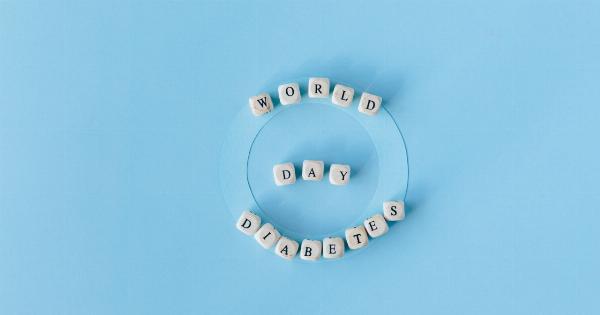Edema is a medical condition characterized by the accumulation of excess fluid in the body’s tissues. It can occur in various parts of the body, such as the legs, arms, hands, feet, or ankles.
While edema can be caused by several factors, including certain diseases and medications, diet plays a crucial role in its development. Consuming certain types of food can contribute to fluid retention and worsen edema symptoms. In this article, we will explore the types of food that can cause edema and provide insights into how they should be avoided or consumed in moderation.
1. Sodium-rich Foods
Sodium is an essential mineral required by the body in small amounts. However, consuming excessive amounts of sodium can lead to water retention and aggravate edema.
Sodium-rich foods include processed and packaged foods, canned soups, salty snacks like chips and pretzels, fast food, and certain condiments like soy sauce and dressings. It is recommended to limit the consumption of these foods to manage or prevent edema.
2. High-Sugar Foods and Beverages
High-sugar foods and beverages can also contribute to edema. Consuming excessive amounts of sugar leads to an increase in insulin levels, which can result in sodium retention and fluid buildup.
Sugary foods such as candies, desserts, sweetened beverages, and processed snacks should be limited in the diet to prevent edema.
3. Refined Carbohydrates
Refined carbohydrates, including white bread, white rice, and pasta, can cause a spike in blood sugar levels and lead to fluid retention. These foods have a high glycemic index and can contribute to inflammation, insulin resistance, and edema.
Opting for whole grains, such as brown rice, whole wheat bread, and quinoa, is a healthier alternative that can help manage edema.
4. Alcohol
While an occasional drink may not cause significant harm, excessive alcohol consumption can contribute to edema. Alcohol acts as a diuretic, which means that it increases urine production and can dehydrate the body.
However, prolonged and excessive alcohol intake can disrupt the body’s fluid balance, leading to edema. It is advisable to moderate alcohol consumption for overall health and to prevent edema.
5. Caffeine
Caffeine, found in coffee, tea, energy drinks, and some soft drinks, can have diuretic effects when consumed in moderation. However, excessive caffeine intake can lead to dehydration and fluid retention, worsening edema symptoms.
It is important to moderate caffeine consumption and drink plenty of water to maintain a healthy fluid balance.
6. Foods High in Trans Fats
Trans fats are unhealthy fats typically found in fried and processed foods, including fast food, frozen meals, commercially baked goods, and snacks. These fats can contribute to inflammation and negatively impact cardiovascular health.
Inflammation can exacerbate edema symptoms. Opting for healthier fats, such as those found in avocados, nuts, and olive oil, can help manage edema.
7. High-Processed Meats
Processed meats, such as sausages, hot dogs, bacon, and deli meats, contain high amounts of sodium and other additives. These additives can lead to fluid retention and worsen edema symptoms.
It is advisable to limit the consumption of processed meats and opt for lean proteins, such as chicken, fish, or plant-based alternatives.
8. Foods with Hidden Sodium
In addition to obvious sodium sources, some foods may contain hidden sodium. These include certain condiments, such as ketchup, barbecue sauce, and dressings, as well as canned or packaged foods like soups, sauces, and frozen meals.
It is essential to read food labels carefully and opt for low-sodium or sodium-free alternatives when possible.
9. Foods High in Histamines
Histamines are compounds involved in the body’s immune response and can cause allergy-like symptoms. Some individuals may experience edema as a result of histamine intolerance.
Foods high in histamines include fermented foods (such as sauerkraut and kimchi), aged cheeses, certain types of fish (such as tuna and mackerel), and processed meats. It is recommended to monitor the consumption of histamine-rich foods in individuals prone to histamine intolerance.
10. Excessive Salt Consumption
While sodium is an essential mineral, excessive salt consumption can lead to fluid retention and worsen edema symptoms. It is advisable to limit the use of table salt and instead rely on herbs, spices, and other flavor enhancers to reduce sodium intake.
Fresh foods, cooked at home, are generally lower in salt compared to processed or restaurant-prepared meals.
Conclusion
Diet plays a significant role in managing and preventing edema. By avoiding or consuming in moderation certain types of foods, individuals can reduce fluid retention and alleviate the symptoms of edema.
It is advisable to prioritize a balanced diet rich in whole foods, including fruits, vegetables, lean proteins, and whole grains. Additionally, maintaining a healthy level of physical activity and staying hydrated can further contribute to managing edema effectively.































